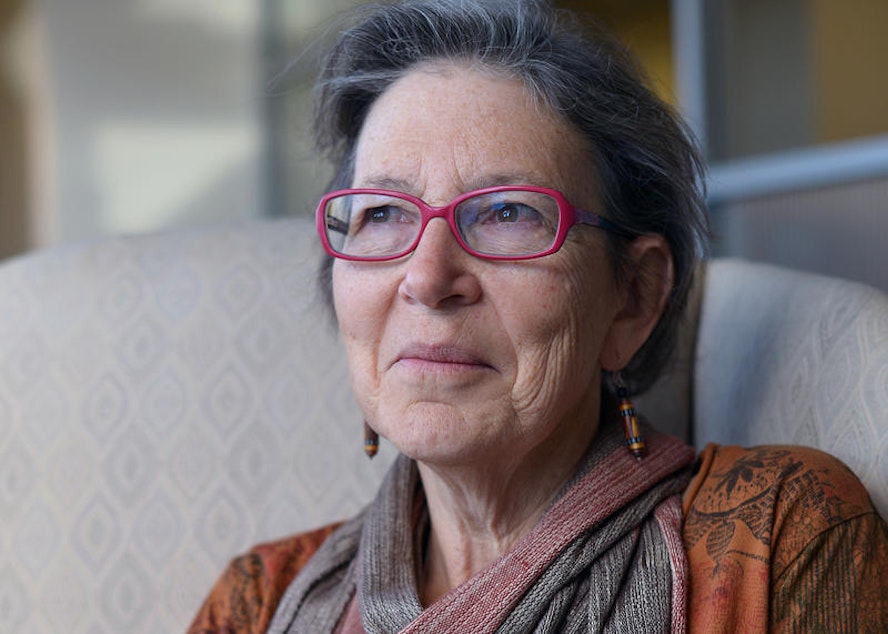Why This Northwest Mom Dedicates Her Life To Preventing Suicide

Marny Lombard lost her only child to suicide. Samuel Henderson Lombard was 22.
Lombard told Bill Radke how that loss led her to become an advocate for suicide prevention. Lombard is an organizer with Zero Suicide: Inland Northwest and a volunteer with Forefront at the University of Washington.
Lombard: Sam was a great kid. He had a great sense of humor. He dyed his hair pink at the end of every school year to celebrate. He was passionate about snowmobiling in the high country -- that was what he lived for. He was an architecture student at Montana State. And he met the world on his own terms.
Sam grew up with what I call the building blocks of depression. There's bipolar in my father's family, several men. It was as though Sam had no skin in over his emotions.
The little bumps of childhood would hurt him inordinately. He cried easily. He felt left out. He was prickly when kids offered friendship.
Those are some of the little-known building blocks of child depression; sense of isolation, eventually a deep sense of hopelessness and worthlessness. That is the progression of depression. And the hopelessness is so painful that suicide becomes a great idea of how to end the pain.
Sponsored
In middle school when Sam first became suicidal, we got him on antidepressants and counseling at that point. And he made a recovery.
But I didn't find strong enough mental health help to really keep an eye on him. Instead, I was told, well he's probably going to grow out of it.
But the fact of the matter is the younger a child comes to depression to the point that they're thinking about suicide, the stronger the chance that the outcome will be poor in young adulthood, and I didn't do enough homework to understand that.
We're remaking our culture around this. This issue is coming out of the shadows. And what I encourage people to think about is why can't we develop a preventive mental health approach. And this means teaching your children about mental illness at a certain time, encouraging your school to work with the children around these issues.
Radke: I lost my brother to suicide about three years ago. I’ve already been talking to his niece, my daughter. She's 8 now. We talk about having thoughts that you don't have to believe or attach to -- you know, stories you tell yourself.
Sponsored
You talked about worthlessness and things like that. I don't know if she's too young or not, but we're talking about it.
Lombard: I think that's great. I think it's wonderful as long as you touch on it and then life goes on. You touch on it some other time and life goes on.
Reach out. Connect. Encourage your children to connect. That is how we thrive. We are social creatures. If you see loneliness, reach out to it. Wrap your arms around the lonely; maybe figuratively, maybe actually.
I lost everything when I lost my only child. But that can give you the freedom to remake yourself. I lost my fear as well. I have nothing left to fear.
And with great resources around me, I found the best way to devote my life is to work in this field. I don't want any other mother to mourn their child lost to suicide.




